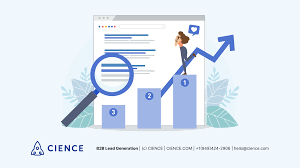Unlocking the Secrets of Effective Website Ranking Strategies
The Importance of Website Ranking
Website ranking plays a crucial role in determining the visibility and success of a website on search engines. When a user searches for information online, search engines like Google, Bing, and Yahoo rank websites based on various factors to provide the most relevant and useful results.
Having a high website ranking is essential for attracting organic traffic and reaching a wider audience. Websites that appear on the first page of search engine results are more likely to receive clicks and engagement from users.
Factors Affecting Website Ranking
Several factors influence website ranking, including:
- Quality Content: Search engines prioritize websites with relevant, high-quality content that meets the needs of users.
- Keywords: Using relevant keywords in website content helps search engines understand the topic and context of the site.
- Backlinks: Links from other reputable websites can boost a site’s credibility and authority in the eyes of search engines.
- User Experience: Factors such as site speed, mobile-friendliness, and ease of navigation impact how users interact with a website.
- Technical SEO: Optimizing technical aspects like meta tags, sitemaps, and URL structure can improve a site’s visibility to search engines.
Improving Website Ranking
To enhance your website ranking, consider implementing the following strategies:
- Create High-Quality Content: Regularly publish informative and engaging content that addresses user queries.
- Optimize Keywords: Conduct keyword research and strategically incorporate relevant keywords into your content.
- Build Quality Backlinks: Seek opportunities to earn backlinks from reputable websites within your industry.
- Enhance User Experience: Ensure your website is user-friendly, fast-loading, and responsive across devices.
- Monitor Performance: Use tools like Google Analytics to track your website’s performance and make data-driven improvements.
In conclusion, understanding website ranking is essential for improving online visibility and driving traffic to your site. By focusing on key factors like quality content, keywords, backlinks, user experience, and technical SEO, you can enhance your website’s ranking position and attract more visitors organically.
Understanding Website Ranking: Key Questions and Strategies for Improvement
- What is website ranking and why is it important?
- How do search engines determine website ranking?
- What are the key factors that influence website ranking?
- How can I improve my website’s ranking on search engines?
- Are there any tools or resources to help monitor and track website ranking?
What is website ranking and why is it important?
Website ranking refers to the position at which a website appears in search engine results for specific keywords or queries. It is crucial because a higher ranking increases the visibility of a website to potential visitors, leading to more organic traffic and engagement. Websites that rank well are more likely to attract users, build credibility, and ultimately achieve their online goals. By understanding and improving website ranking through factors such as quality content, keywords, backlinks, user experience, and technical SEO, businesses can enhance their online presence and reach a wider audience effectively.
How do search engines determine website ranking?
Search engines determine website ranking through a complex algorithm that considers various factors to assess the relevance and quality of a website’s content. Key aspects that influence website ranking include the use of relevant keywords, the quality and depth of content, the number and authority of backlinks pointing to the site, user engagement metrics, technical aspects like site speed and mobile-friendliness, and overall user experience. Search engines aim to provide users with the most valuable and trustworthy results based on these criteria, which ultimately impact a website’s position in search engine results pages. Understanding and optimising these factors can help improve a website’s ranking and visibility online.
What are the key factors that influence website ranking?
When it comes to website ranking, several key factors play a crucial role in determining a site’s position on search engine results pages. Factors such as the quality and relevance of content, strategic use of keywords, the presence of authoritative backlinks, user experience considerations, and technical SEO optimizations all influence how search engines assess and rank a website. By focusing on these key factors and implementing effective strategies to address them, website owners can improve their ranking position and enhance their online visibility to attract more organic traffic and engage with their target audience effectively.
How can I improve my website’s ranking on search engines?
Improving your website’s ranking on search engines involves implementing various strategies to enhance visibility and attract organic traffic. To boost your website’s ranking, focus on creating high-quality, relevant content that addresses user queries and incorporates targeted keywords. Building quality backlinks from reputable websites within your industry can also improve your site’s credibility and authority in the eyes of search engines. Additionally, ensuring a positive user experience by optimizing site speed, mobile-friendliness, and navigation can further enhance your website’s ranking position. Regularly monitoring performance metrics and making data-driven improvements based on analytics insights is key to continuously improving your website’s ranking on search engines.
Are there any tools or resources to help monitor and track website ranking?
For those looking to monitor and track their website ranking, there are several tools and resources available to assist in this task. Tools such as Google Analytics, SEMrush, Ahrefs, Moz Pro, and Rank Tracker offer valuable insights into website performance, keyword rankings, backlink profiles, and more. These tools provide data on how a website is performing in search engine results, allowing users to track changes over time and identify areas for improvement. By utilising these monitoring tools, website owners can gain a better understanding of their online visibility and make informed decisions to enhance their website ranking.



